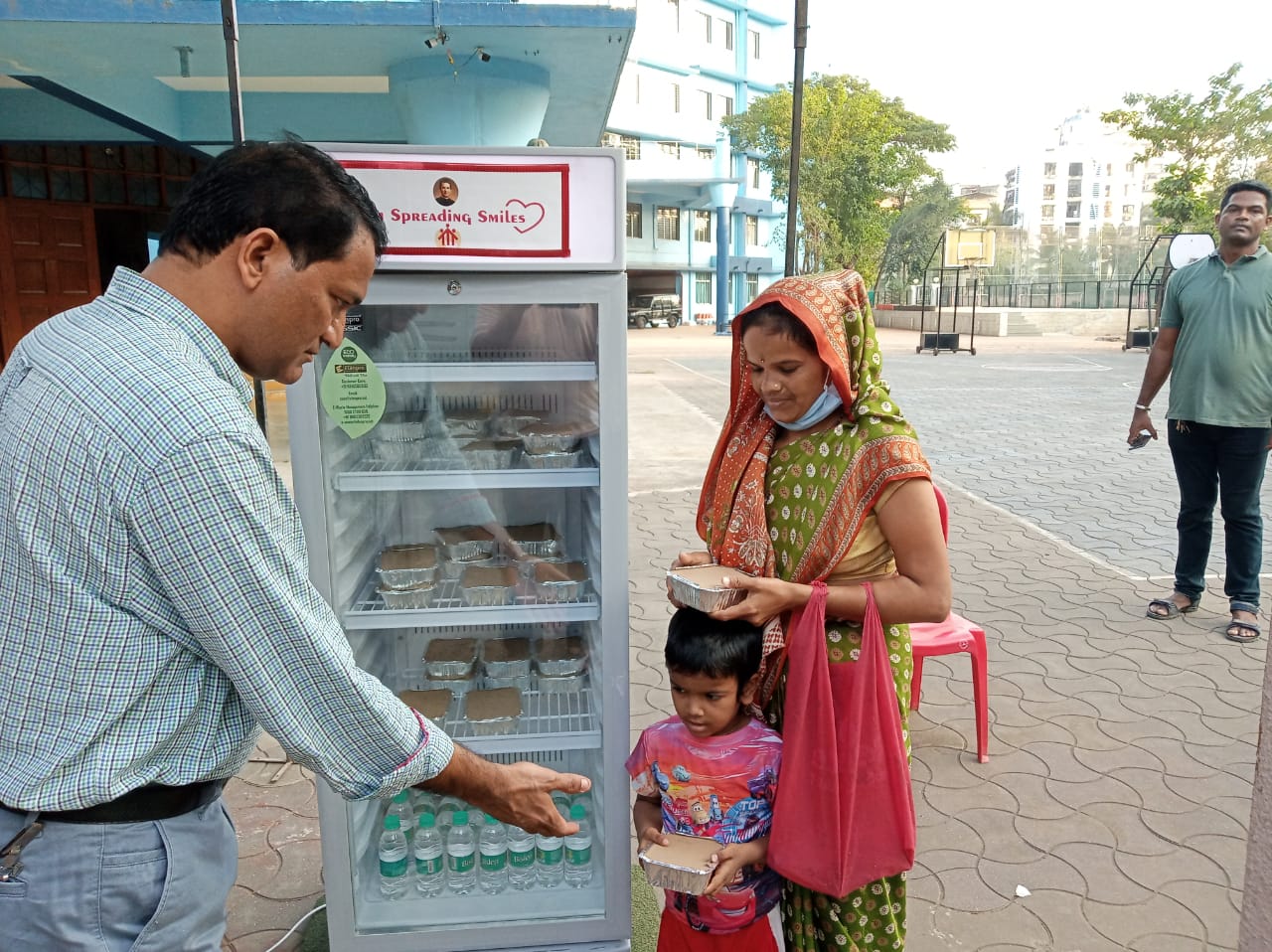INDIA: New community refrigerator opens for poor, hungry

Don Bosco Nerul launches new community refrigerator to provide food and snacks to those facing hunger
(MissionNewswire) Don Bosco Nerul, located in Mumbai, India, has installed a community refrigerator to provide food and snacks for those facing hunger and have nowhere else to turn. Salesian missionaries are calling this initiative Don Bosco Cares.
During the lockdown caused by the COVID-19 pandemic, Don Bosco Nerul reached out to 25,000 families and 10,000 migrants who had been impacted. Many who were already in poverty faced hunger without having money to buy food. While the lockdown has ended, migrants and those living in poverty, including those living on the streets, are still not able to feed themselves.
Don Bosco Nerul is working to reach out to these individuals and provide support in their time of need. The community refrigerator is one such initiative. It launched on Jan. 22, and anyone who is poor or hungry may open the refrigerator and take enough to satisfy their immediate hunger. There is another box that has snacks, secondhand clothes and handmade masks.
Father Adolf Furtado said, “This is an act of faith in divine providence. It is very much in the true spirit of our founder St. John (Don) Bosco. We do not put food in the refrigerator each day. People in our neighborhood do that. Its success depends on the donating public. We have had it in operation over the past week, and there is a good demand for the food and an equal if not greater number of generous donors to help us with replenishing the food stock daily.”
The community refrigerator was inaugurated by the local NRI police station chief and is sponsored by Team Spreading Smiles, which has also been instrumental in conducting online classes for the Don Bosco Nerul oratory.
India has the world’s fourth largest economy but more than 22 percent of the country lives in poverty. About 31 percent of the world’s multidimensionally poor children live in India, according to a report by the Oxford Poverty and Human Development Initiative. A “multidimensionally poor” child is one who lacks at least one-third of 10 indicators, grouped into three dimensions of poverty: health, education and standard of living.
India’s youth also face a lack of educational opportunities due to issues of caste, class and gender. Almost 44 percent of the workforce is illiterate and less than 10 percent of the working-age population has completed a secondary education. In addition, many secondary school graduates do not have the knowledge and skills to compete in today’s changing job market.
###
Sources:
Photo courtesy of Salesian Missions (contact for usage permissions)
Salesian Missions – India
World Bank – India





